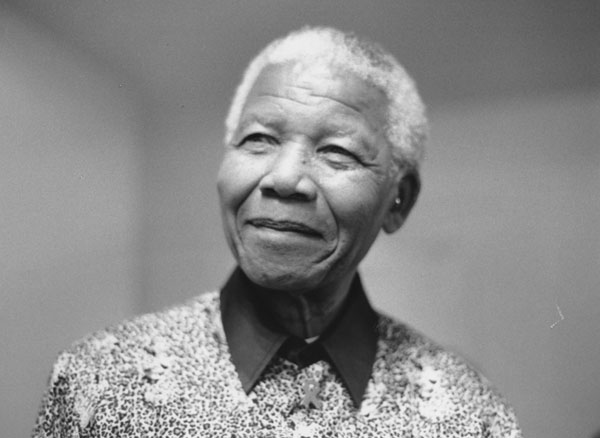Celebrating #MandelaDay
Nelson Mandela served as the President of South Africa from 1994 to 1999 and also served as the President of the African National Congress from 1991 to 1997. As a lawyer, he was arrested multiple times and was eventually sentenced to life in prison for founding the militant group, Umkhonto we Sizwe in 1961, an organization resisting apartheid in South Africa. After twenty seven years, Mandela was released by President F. W. de Klerk on February 11, 1990. Once released, both de Klerk and Mandela put together a plan to dismantle apartheid and make the country more equitable. In 1994, Mandela won the first ever open elections and became president. The focal points of his presidency were creating a new constitution that denounced racism and promoting reconciliation between the country’s groups.
When Mandela’s presidency ended, he went on to do charitable work with people diagnosed with AIDS and HIV. Today he is often referred to by his Xhosa clan name, Madiba, and is deeply respected internationally. Arthur Ashe considered Mandela one of his personal heroes. Ashe consistently spoke out against the South African regime in the ‘70s and ‘80s and cofounded the organization Artists and Athletes Against Apartheid in 1983 to help leaders in arts and sports to take a stand against social injustice.
The message Mandela Day wants us to heed to is achieved through three rules Mandela was said to follow: free yourself, free others, and serve every day. Mandela Day’s objective is to inspire people to take action and celebrate the potential they have to change the world for the better. It aims to begin a global movement where people are encouraged to ask themselves, “What am I doing to make the world a better place?” everyday, and then take steps to implement change in things they see as unjust. The motto is “Take Action and Inspire change,” challenging everyone to observe it in order to honor Mandela and his life’s work.
Since the day’s founding, The Nelson Mandela Foundation (NMF) has focused on particular themes to promote the restoration of dignity and empowerment. These themes include food security, education & literacy, shelter & infrastructure, and the environment. The UN Secretary-General Ban Ki-moon asks for participators to devote 67 minutes of their time today to a community service activity in order to commemorate the 67 years Mandela devoted to fighting for human rights.
Some 2016 initiatives are specifically created to dovetail with NMF’s major themes, including: “The Shoe Box,” which aims to raise money to fund new school shoes for kids; “The 67 Loaves Initiative,” which offers the community of the Delft township quality low cost bakery products; and “67 Baby Boxes,” which hands out starter packs for new mothers who can’t afford new clothes. Guidelines and a Mandela Day Ethical Framework for a project you would like to visualize can be found on www.mandeladay.com. Throughout the globe today, people are celebrating Mandela Day by taking inspirational actions and promoting the four pillars the NMF encourages people to focus on. Join them!

